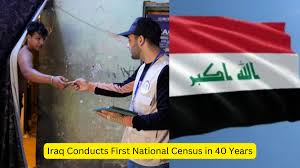BRICS Foreign Ministers Meeting Starts in Cape Town: Local Currency Trade Likely on Agenda
The BRICS Foreign Ministers Meeting recently commenced in Cape Town, South Africa, with the primary objective of strengthening cooperation and addressing key issues among the member countries. BRICS, an acronym for Brazil, Russia, India, China, and South Africa, represents a significant alliance of emerging economies. The meeting, attended by the foreign ministers of these countries, is expected to pave the way for enhanced economic collaboration and explore new avenues for mutual benefit.
Cooperation and Agenda Setting
The BRICS bloc aims to foster cooperation in various domains, including trade, finance, and culture. The foreign ministers’ meeting serves as a crucial platform for strategic discussions and policy formulation, facilitating consensus on important matters. It sets the agenda for further collaboration, focusing on areas of mutual interest and concern.
Local Currency Trade: Exploring New Possibilities
One of the key aspects likely to be discussed at the meeting is local currency trade. The member countries are expected to deliberate on measures to promote and facilitate trade transactions in their respective local currencies. This initiative aims to reduce dependence on traditional foreign currencies, enhance financial stability, and bolster economic ties within the bloc. By minimizing the reliance on external currencies, BRICS nations can mitigate risks associated with fluctuating exchange rates and strengthen economic resilience.
Strengthening Economic Collaboration
The BRICS Foreign Ministers Meeting provides a platform to strengthen economic collaboration among member countries. By fostering trade relations, encouraging investments, and promoting technology transfer, BRICS nations can unlock immense potential for economic growth and development. Discussions during the meeting will likely revolve around identifying key sectors for cooperation, streamlining trade policies, and addressing barriers to cross-border investments. Strengthening economic ties within the bloc can lead to greater prosperity and shared benefits for all member nations.
Addressing Global Challenges
Apart from economic cooperation, the meeting also offers an opportunity to address global challenges collectively. BRICS countries can collaborate on issues such as climate change, sustainable development, and global governance reforms. By presenting a united front, they can exert a greater influence on the international stage, advocate for their shared interests, and contribute to shaping global agendas.

Why this News is Important:
Strengthening BRICS Cooperation
The BRICS Foreign Ministers Meeting in Cape Town carries great importance in strengthening cooperation among the member nations. This gathering provides a platform for strategic discussions and policy formulation, setting the agenda for further collaboration. By enhancing cooperation in various domains, BRICS countries can unlock new opportunities and overcome shared challenges.
Economic Implications and Local Currency Trade
The discussion on local currency trade holds significant implications for the economies of BRICS nations. Promoting trade transactions in local currencies reduces reliance on traditional foreign currencies, enhancing financial stability and resilience. This initiative fosters economic growth, mitigates exchange rate risks, and strengthens economic ties within the bloc.
Addressing Global Challenges and Shaping Agendas
The meeting also allows BRICS countries to collectively address global challenges and advocate for shared interests. By collaborating on issues such as climate change, sustainable development, and global governance reforms, they can exert greater influence and contribute to shaping global agendas. This united approach amplifies their voices and enhances their ability to drive positive change on the global stage.
Historical Context:
Emergence and Evolution of BRICS
The BRICS alliance originated in 2001 as “BRIC” when Brazil, Russia, India, and China recognized the potential for collaboration among their rapidly growing economies. In 2010, South Africa joined the group, expanding it to BRICS. Since then, BRICS has evolved into a crucial platform for emerging economies to foster cooperation, enhance trade relations, and address shared challenges.
Previous BRICS Summits and Initiatives
Over the years, BRICS has held several summits and ministerial meetings to deepen collaboration and explore avenues for mutual benefit. These meetings have facilitated the establishment of various initiatives such as the New Development Bank (NDB), the Contingent Reserve Arrangement (CRA), and the BRICS Business Council. These initiatives aim to strengthen economic ties, foster innovation, and promote sustainable development within the alliance.
Key Takeaways from “BRICS Foreign Ministers Meeting Starts in Cape Town: Local Currency Trade Likely on Agenda”
| Takeaway | Key Takeaway |
|---|---|
| 1 | The BRICS Foreign Ministers Meeting aims to strengthen cooperation and address key issues among member countries, namely Brazil, Russia, India, China, and South Africa. |
| 2 | Local currency trade will be a significant topic of discussion, with member nations exploring ways to promote trade transactions in their respective local currencies. |
| 3 | Enhancing economic collaboration within the bloc is a priority, focusing on trade relations, investments, and technology transfer to unlock potential for economic growth. |
| 4 | The meeting provides an opportunity to collectively address global challenges such as climate change, sustainable development, and global governance reforms. |
| 5 | The BRICS alliance has evolved over the years, with the establishment of initiatives like the New Development Bank (NDB) and the Contingent Reserve Arrangement (CRA). |
Important FAQs for Students from this News
Q: What is the significance of the BRICS Foreign Ministers Meeting?
A: The BRICS Foreign Ministers Meeting is significant as it aims to strengthen cooperation among the member countries, address key issues, and set the agenda for further collaboration in various domains such as trade, finance, and culture.
Q: Why is local currency trade an important topic of discussion?
A: Local currency trade is important because it reduces dependence on traditional foreign currencies, enhances financial stability, and strengthens economic ties within the BRICS bloc. It also mitigates risks associated with fluctuating exchange rates.
Q: How does the BRICS alliance contribute to economic growth?
A: The BRICS alliance contributes to economic growth by fostering trade relations, encouraging investments, and promoting technology transfer among member countries. This collaboration unlocks immense potential for economic development and shared benefits.
Q: What are the global challenges addressed by BRICS countries?
A: BRICS countries collectively address global challenges such as climate change, sustainable development, and global governance reforms. By presenting a united front, they aim to exert greater influence and contribute to shaping global agendas.
Q: What are the key initiatives established within the BRICS alliance?
A: Within the BRICS alliance, key initiatives have been established, including the New Development Bank (NDB) and the Contingent Reserve Arrangement (CRA). These initiatives aim to strengthen economic ties, foster innovation, and promote sustainable development.
Some Important Current Affairs Links














